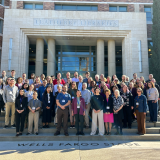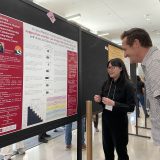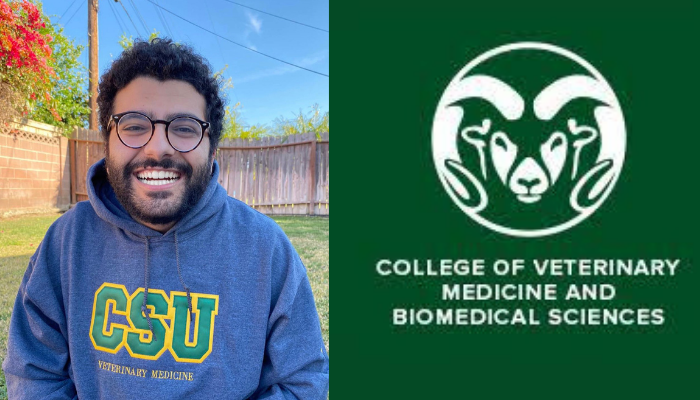
Journey to Veterinary School – Johnny Altwal ’21 Biochemistry alum shares the benefits of his undergraduate research experience
November 1, 2021
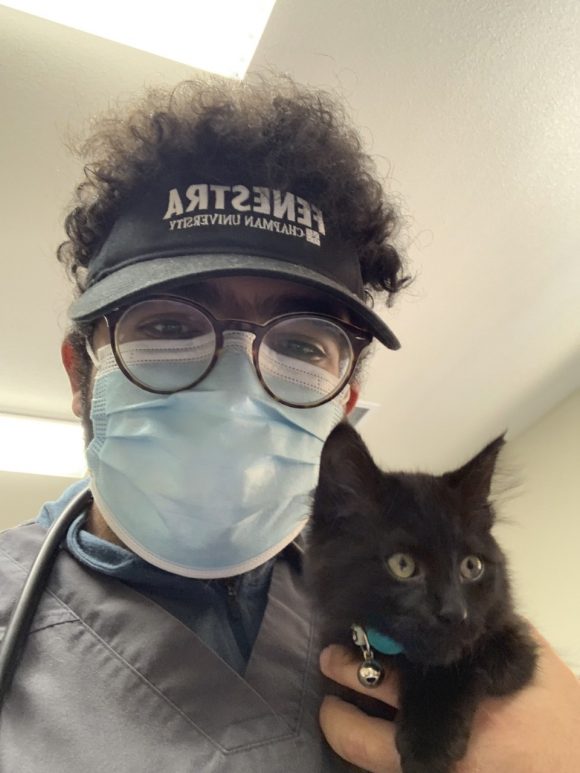
Johnny Altwal, ’21, graduated with a B.S. in biochemistry and molecular biology, found his way to Colorado State University to begin his Doctorate of Veterinary Medicine.
Recently, Altwal’s research on 3D printing of animal surgery was published in the Veterinary Surgery Journal, the only journal pertaining to surgery in veterinary medicine and is the official journal of both the American and European Colleges of Veterinary Surgeons. Click here to read Johnny’s published research study!
We asked Altwal a few questions about his research, how veterinary school is going, and how Chapman was able to prepare him for this stage of his educational career!
Q&A with Johnny Altwal
Q: What led you to decide to pursue this career path?
JA: “Even though I’ve never actually had a pet, I’ve always really loved animals and the bonds humans can form with them. As I grew older, I found myself really interested in science, particularly medicine, so veterinary medicine was the perfect intersection of all of that. Becoming a veterinarian opens up so many diverse opportunities in terms of career paths which is what makes pursuing this career so exciting and rewarding.”
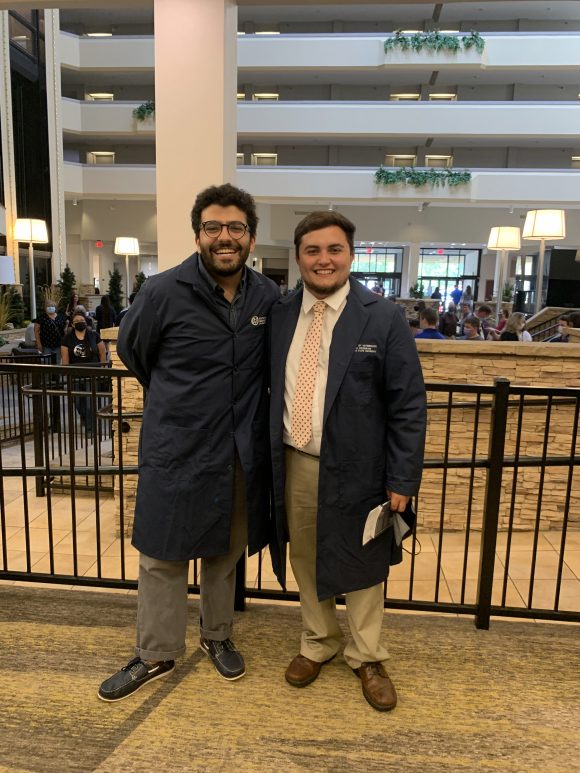
Q: Can you give a brief overview of your research and how it impacts the veterinary field of study?
JA: “My paper is on the various applications of 3D printing in small animal surgery. My co-authors and I compiled all the literature we could find on how 3D printing can be implemented into veterinary surgery in various capacities and how this could be of a huge benefit to veterinarians, veterinary students, and their clients. Ultimately, it serves as the most recent guide for veterinarians interested in learning more about how they may be able to implement these technologies into their regular practices.”
Q: After being in veterinary school for a few months now, how is it going? Do you feel Chapman prepared you well for veterinary school?
JA: “Chapman has truly prepared me for my rigorous graduate program. Sometimes I feel like the formats of my current classes are similarly modeled to mine at Chapman and I often feel like Chapman professors (especially senior year) expected a similar level of critical thinking and depth to what I am expected to produce at a graduate-level now. My mentors at Chapman were also huge resources for me in learning how to navigate things like networking and starting new research projects.”
Q: What was your experience working on research as an undergraduate student?
JA: “The research that I did at Chapman was under the mentorship of Dr. Caroline Wilson at Crean College who ran their 3D printing lab. She designed and printed anatomically accurate 3D prints for use in the anatomy lab she taught. I became interested in this process and she offered to teach me how to do it and also offered me an opportunity to design my own veterinary 3D prints. Throughout this, I learned about all the interesting applications 3D printing has in veterinary medicine both from a functional perspective but also from a student and client education perspective as well. I wrote a preliminary review paper on the diverse applications of 3D printing in veterinary medicine which caught the attention of a veterinary surgeon who was interested in helping me elevate my paper for publication. With her surgical expertise, we were able to modify my paper and specifically look at how 3D printing can be used in small animal veterinary surgery which is what we ended up publishing!”
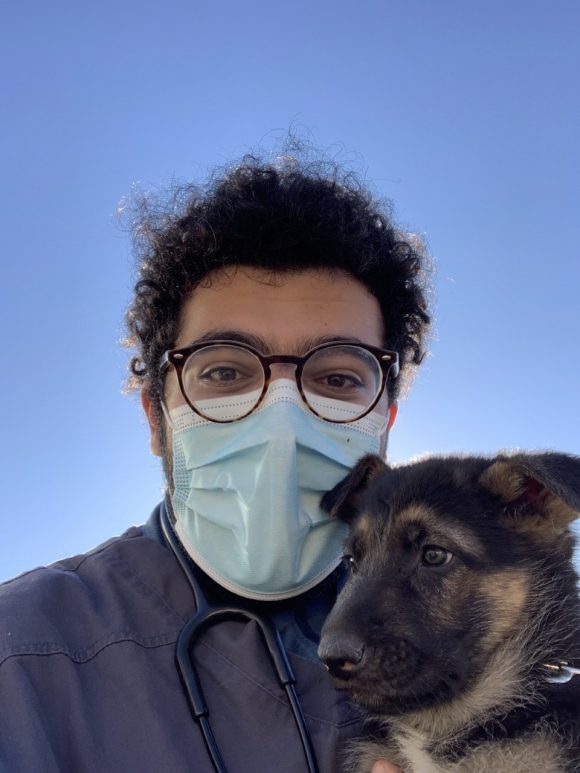
Q: Do you feel like your undergraduate research experience has prepared you for your future career? How so?
JA: “Yes! Immensely so. I feel like my research experiences at Chapman taught me to think critically at a much higher level than I had before. These experiences taught me so much about the research world in terms of how good studies are designed and how good papers are written which is not something that all my current vet school peers know yet.”
Q: What are your future career and research goals?
JA: “Currently, I am interested in specializing in small animal surgery and focusing on surgical oncology. That means once I finish vet school, I will need to complete a one-year rotating internship, followed by a three-year surgery residency, and then lastly a one-year surgical oncology fellowship. After that, I hope to research companion animal cancer at a vet school which will allow me to treat patients, do research, and teach students.”
Congratulations Johnny on your publication and we are excited to see you continue to succeed in your career!
